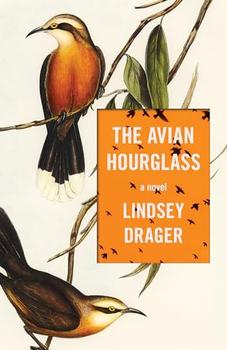Book Club Discussion Questions
Please be aware that this discussion guide will contain spoilers!
About This Guide
The following author biography and list of questions about
Specimen Days are intended
as re-sources to aid individual readers and book groups who would like to learn
more about the author and this novel. We hope that this guide will provide you a
starting place for discussion, and suggest a variety of perspectives from which
you might approach
Specimen Days.
About This Book
Specimen Days, the much anticipated follow-up to Michael Cunningham's
award-winning inter-national bestseller
The Hours, reconfirms the
author's daring imagination and storytelling gifts. Comprised of three
thematically linked novellas,
Specimen Days is both
inspired by, and an homage to, American visionary poet Walt Whitman. The first,
"In the Machine," is a ghost story at the height of the industrial revolution;
the second, "The Children's Crusade," is a con-temporary crime thriller about a
kids' terrorist ring; and the third, "Like Beauty," is an inter-species romance
circa 2150. Provocative, entertaining, and unexpectedly moving,
Specimen Days is, as
The New York Observer
states, "an extraordinary book, as ambitious as it is generous."
Discussion Questions
- Why do you think Michael Cunningham chooses the particular epigraph from
Walt Whitman to introduce his book? In what ways does it prepare you for the
three stories that follow?
- In the author's note, Cunningham, addressing the issue of novelists
using actual events or people in their work, writes: "the strict sequence of
historical events, however, tends to run counter to the needs of the
storyteller." What do you think he means, particularly in regards to
Specimen Days? Do you agree with him? Why?
- Why do you think Cunningham chose Walt Whitman as the representative
poet for the story he tells? Could you imagine other poets serving that
role? Were you able to identify when Cunningham was quoting Whitman in the
text? Do the quotes function differently in each story? How do the quotes
serve Cunningham's work as a whole? Which quotes from Whitman did you
particularly like? Why? Does there seem to be a particular sensibility or
spirit to Whitman's poetry that mirrors Cunningham's own vision for
Specimen Days? Explain.
- Would you classify Specimen Days as a novel? Why? What themes and
motifs link the three stories? What qualities distinguish them? Did you find
yourself responding more pas-sionately to one particular story? Explain.
- Can you identify the different literary genres on which Cunningham
models each of his stories? How does Cunningham remain faithful to, or
transform, each of the genres?
- What do you think is the significance of the titles "In the Machine,"
"The Children's Crusade," and "Like Beauty"? Can you identify specific
examples, such as historical events, literary themes, or certain characters,
to support your ideas?
- Which characters did you find most compelling or sympathetic? Why? Do
you see any progression or change in each of the three similarly named
characters as they move throughout Specimen Days? Explain.
- How does the geography of New York City play an important role within
Specimen Days? Did you detect any similar geographic details or
references to specific historical events within all three stories? If so,
what's the effect?
- How might "In The Machine," "The Children's Crusade," and "Like Beauty"
each be described as a love story? Cunningham, who has touched on gay themes
in A Home at The End of The World and The Hours, has called Specimen Days
a "queer" work but not a gay one. What do you think he means?
- Do you see Specimen Days as a politically or socially engaged
novel? Why? Are there events in all three stories that seem to comment on
current political, cultural, or social conditions? Explain.
- One recurring quote from Whitman throughout Specimen Days is "urge and
urge and urge, always the procreant urge of the world." How do you interpret
that quote? Why is it significant to the book as a whole?
- Do you find the ambiguity of each story's ending optimistic or
pessimistic? Explain. Consider Simon's final quote from Whitman: "The earth,
that is sufficient, I do not want the constellations any nearer, I know they
are very well where they are, I know they suffice who belong to them." Is it
an appropriate closing to both "Like Beauty" and Specimen Days? Explain.
For more information on Picador Reading Group Guides: Call: 646-307-5629. Fax: 212-253-9627. E-mail:
readinggroupguides@picadorusa.com. For a complete listing of reading group guides visit:
www.picadorusa.com.
Unless otherwise stated, this discussion guide is reprinted with the permission of Picador.
Any page references refer to a USA edition of the book, usually the trade paperback version, and may vary in other editions.




